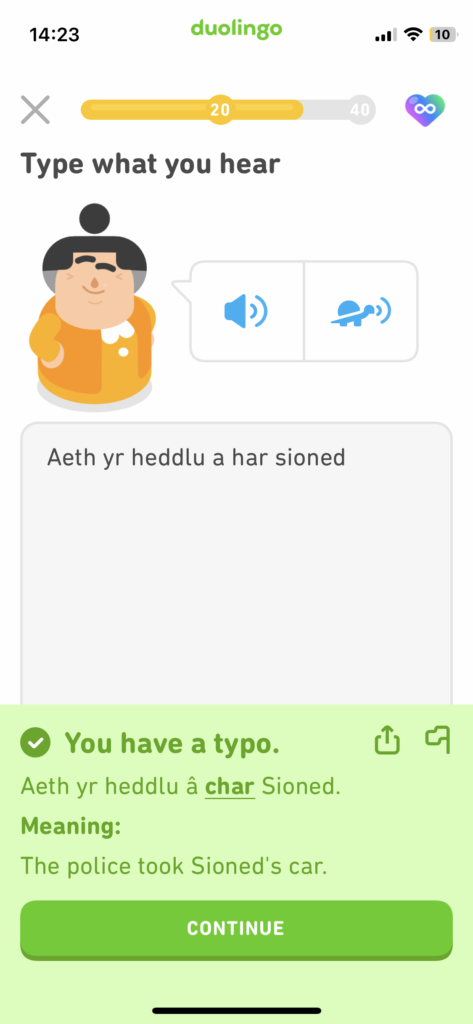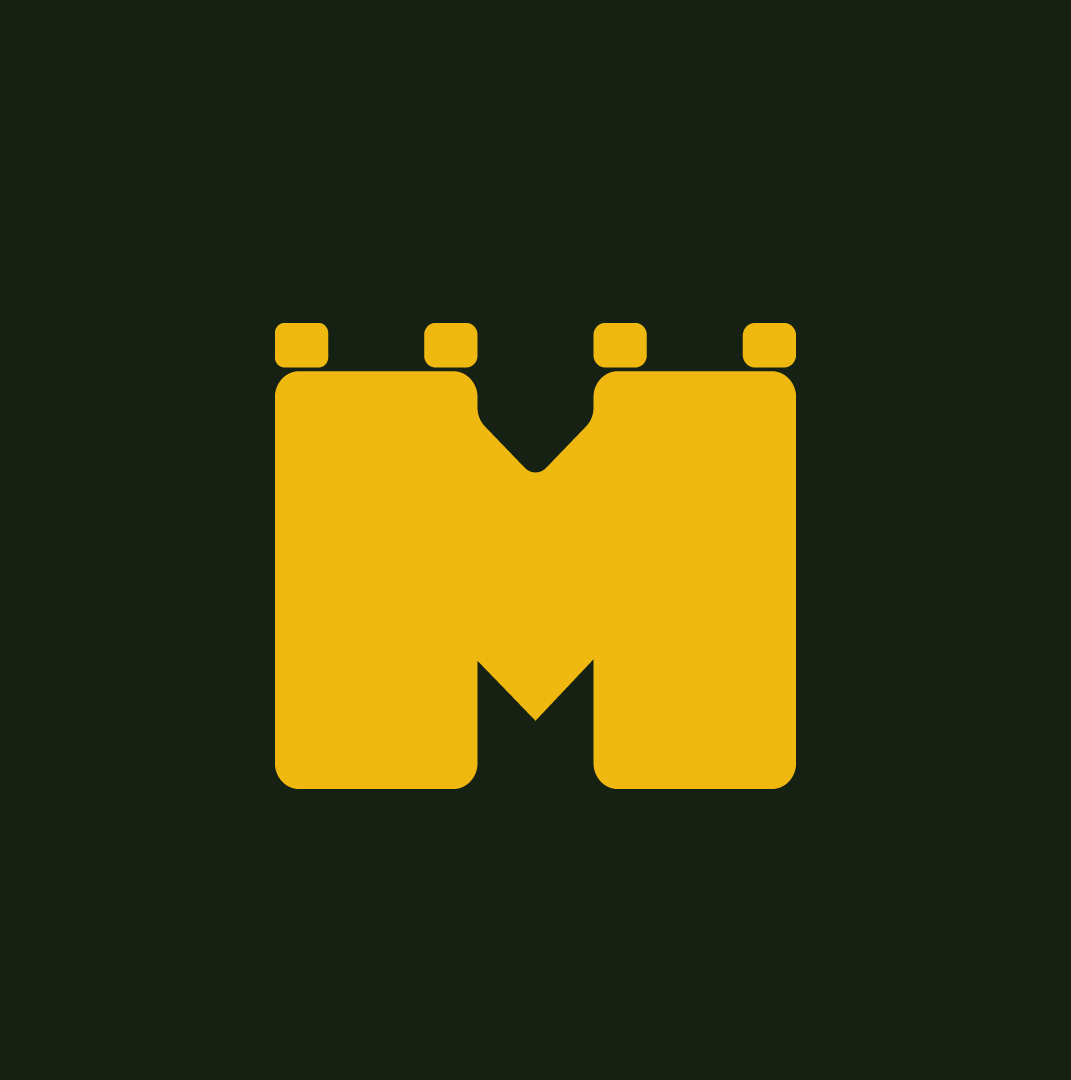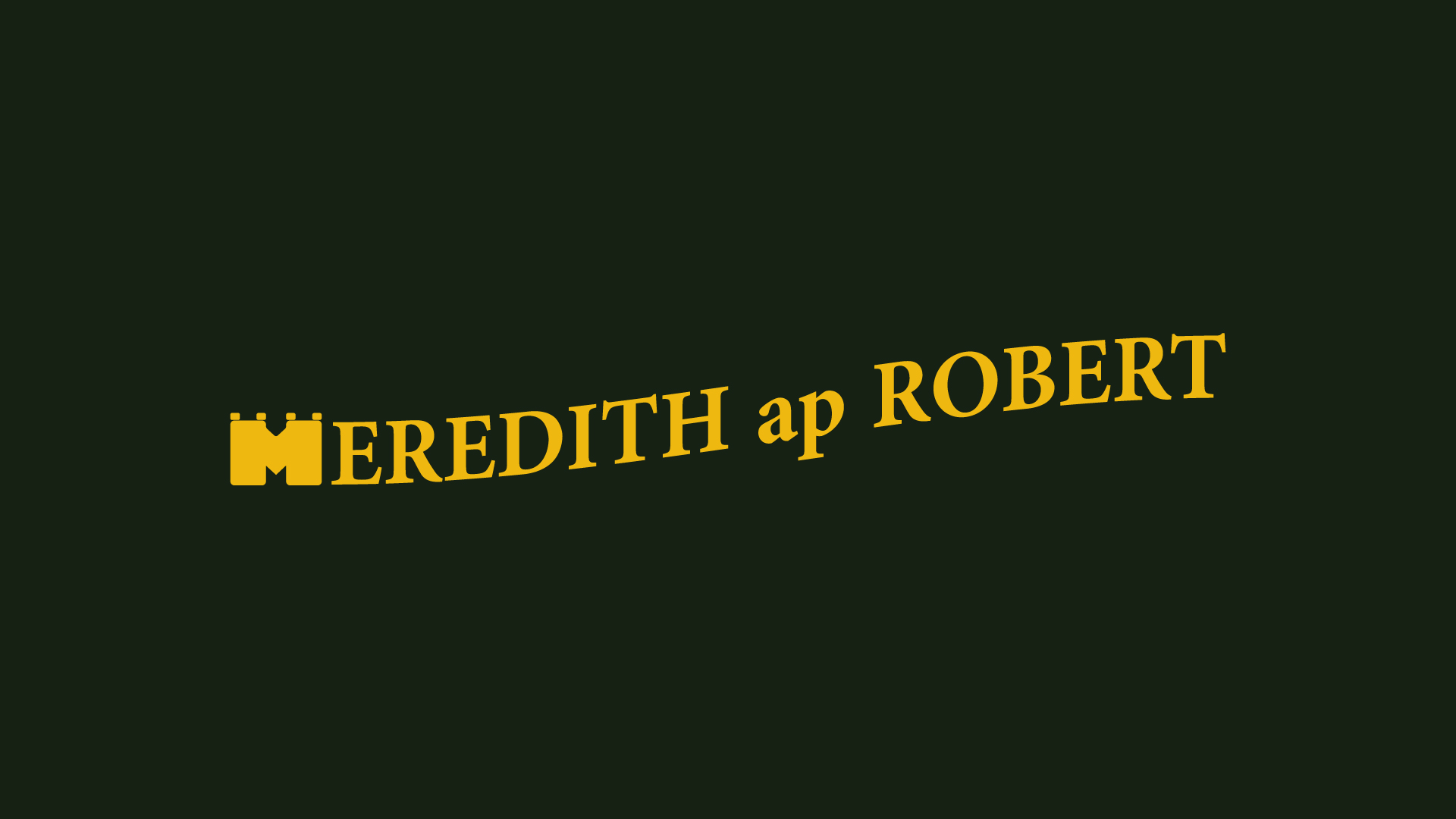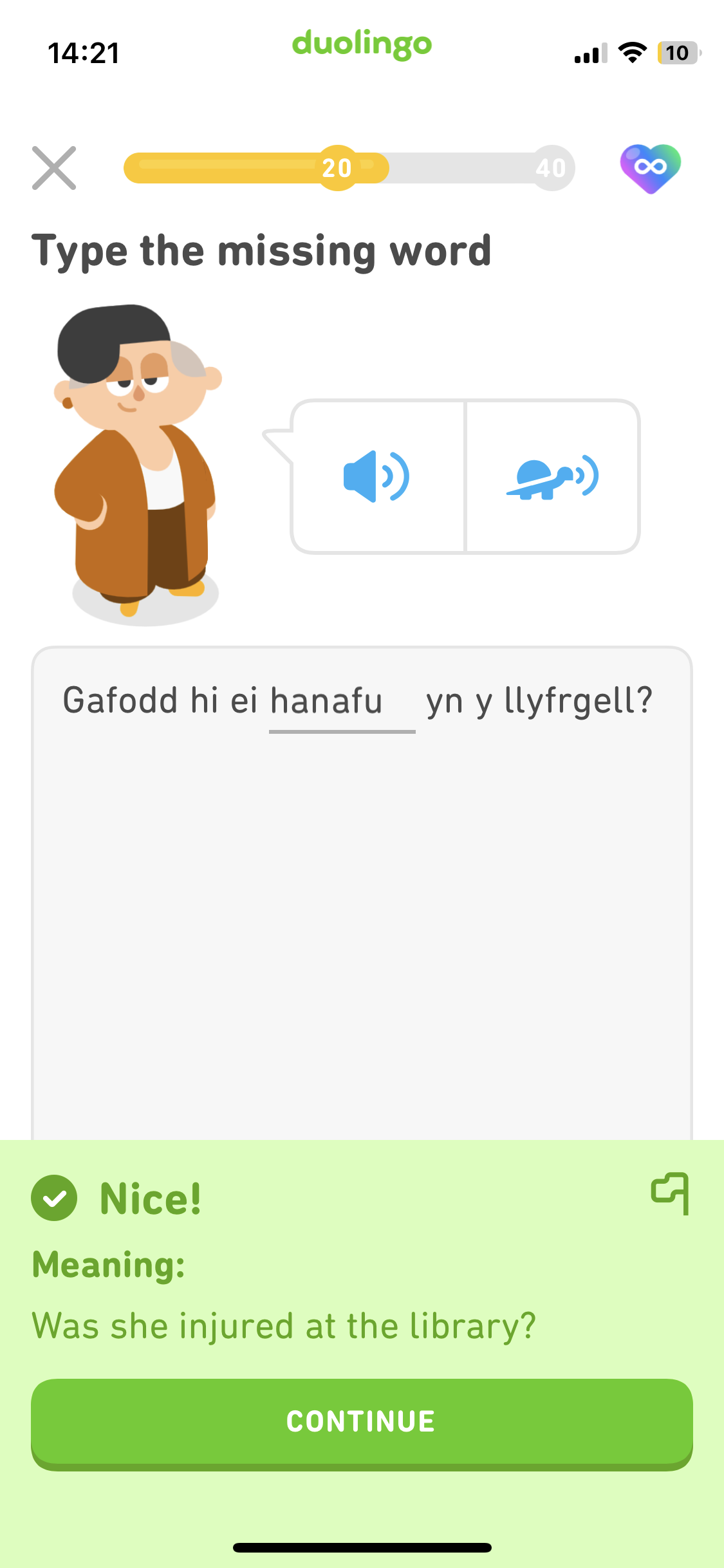Lifelong learner.
A laudable philosophy. Looks nice on your LinkedIn. But in practice? As something more than a slogan? Exhausting.
In my 20s, fresh out of school, it felt like an invigorating mantra. A celebratory affirmation of the wonder of the universe. As I approach 40 and find myself nearing the likely halfway point of my life (God willing), I’ve been eyeing up the accumulated knowledge of my life and comparing it against the infinite counterbalance of everything-yet-to-be-learned.
It starts to feel debilitating. If it’s a hike up a mountain, I feel like when I turn around to measure the distance trekked, I can still spot my car in the parking lot. Maybe even read off my license plate number if I squint.
This is where I’m at with my Welsh for the moment. I’m enrolled in weekly online classes and trying my best to spend 15 minutes a day learning on Duolingo. And while I hope to add regular lessons using Say Something In Welsh, right now? I just feel exhausted.
I dread my Monday classes. I don’t know if I even see the mountain in front of me, it’s more like being stuck in a muddy hollow without a view ahead or behind. I panic at questions in Cymraeg and try to stammer out an acceptable response. Invariably, I throw in a “sorry” or two whether or not I think I’ve made a mistake—just in case.
On the good days, at the end of two hours, I feel tired but proud—determined to make more of an effort in the week between classes to keep learning. On the bad days, I just feel tired.
By the time the green owl’s squawking at me on Tuesday, I flip to Spanish, my husband’s first language and that of my in-laws. I don’t feel good about either my Welsh or my Spanish, but when you stand them together and size them both up, my Spanish at least has a sense of how to get up the mountain. Sure, there’s no ancestral guilt away in the hills calling my name and willing me onward, but the incline is reasonable and the path is clear.
By the time I get back to Welsh Duolingo on Thursday or Friday, I raise my eyebrows in bewilderment at words I don’t recognize. Did I learn this? If so, when? And why, specifically, am I learning to say that Owen got arrested in the village? Why is the verb for “murder” part of introductory Cymraeg?

The worst is when I get an e-mail in Welsh. It’s not that I can’t run them through Google for a translation, it’s that I feel so ashamed of not being able to respond in Cymraeg. Not really, anyway. I can add in “Annwyl” at the beginning, I can say thank you for your message (“Diolch am dy neges”) or e-mail (“ebost”). I can even say that I hope they’re well. But apart from that and a quick “cofion cynnes,” I’m absolutely hopeless.
And as it stands, I’ve got two messages from around Christmas I still haven’t responded to. Apparently I would rather talk about my guilt than meaningfully face it?
Recently, I saw someone post on Twitter that this is the year that they learn Cymraeg. I had a few thoughts, each in equal measure. First, good on you—da iawn. Genuinely happy and proud. Bydded i’r hen iaith barhau. Second, calm yourself.
No, I don’t know the Welsh for that.
I started all this half a lifetime ago with a Rosetta Stone program in high school. True enough, I stepped away from it for a long, long time. I’m proud I found my way back, but my God, this is a tough one to climb.
Meredith ap Robert
If you enjoy my writing, please consider supporting me on Patreon for as little as $2/month!


